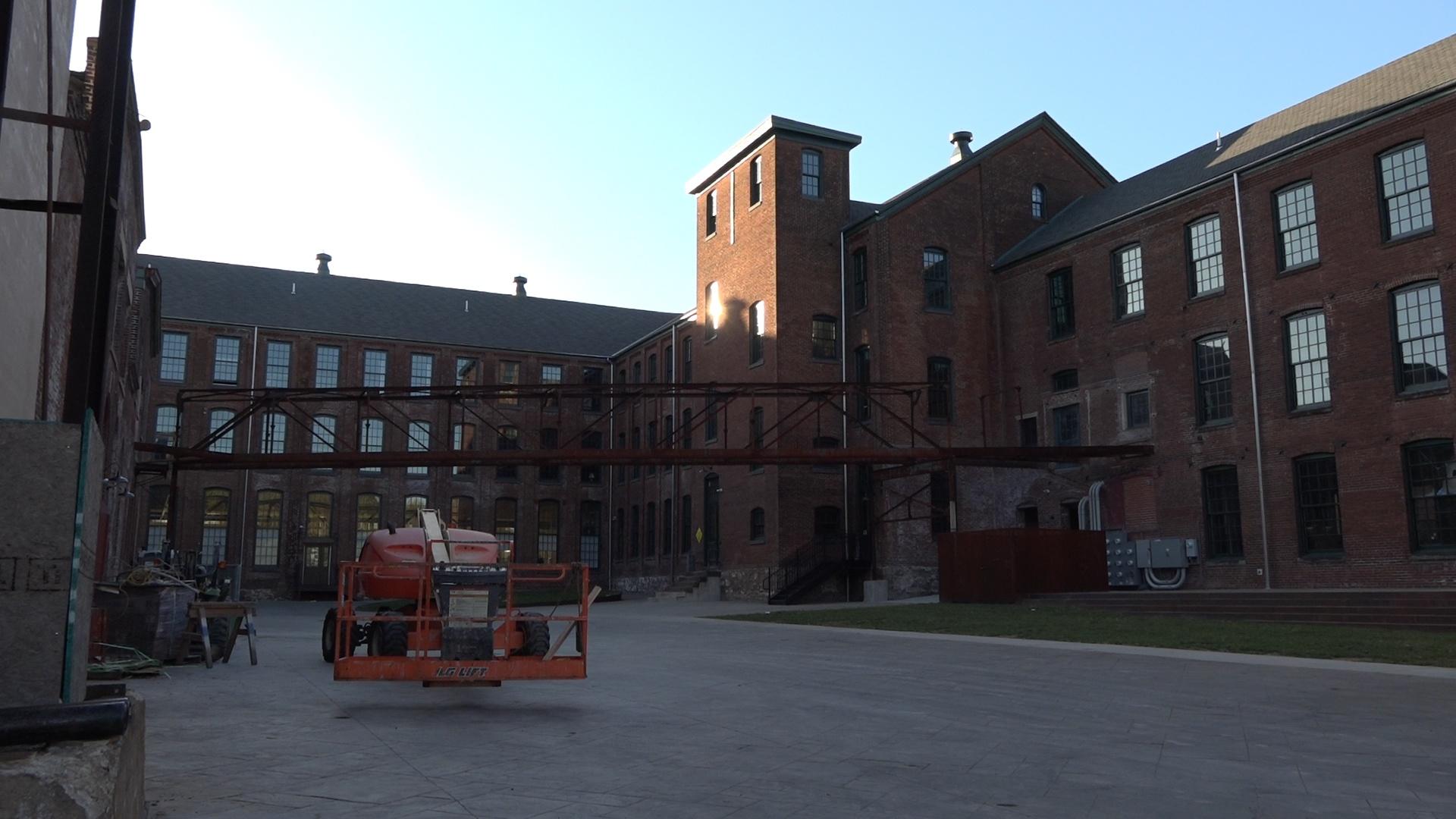EASTON, Pa. (WLVT) - The Simon Silk Mill is hard to miss. It was built in 1883 and abandoned in the 1960s -- but now, it's home to residents and businesses.
"We've driven by this this site a million times, and it was just rubble for the longest time," said Justin Fretz, a Palmer Township native and owner of Easton Wine Project. "My grandmother actually worked in one of these buildings way back in the day."
Fretz opened his business last February. He said the mill has just about everything someone would want or need.
"From coffee to gym yoga, your pictures taken in the salon, you know, even get married here now," he said.
Just a few doors down is Tucker Silk Mill, an Australian cafe that opened about two years ago. Owner Jason Hoy said the location and the site itself drew him in.
"You have this wealth of beautiful architecture that has stood the test of time," he said. "So, I think versus building new houses out of flimsy materials and sort of creating a lot more urban sprawl, it's a great way to use some really beautiful buildings and increase that population density to build a small community as well."
The mill’s transformation didn’t happen overnight. Mark Mulligan, CEO of VM Development Group, said it took several years and millions of dollars.
"Every other developer passed," he said. "It takes a lot of creative thinking to make these projects work. They're not easy, but the rewards are great."
State Representative Bob Freeman said the Simon Silk Mill is an example of a transformation he'd like to see across Pennsylvania. The Democrat representing the 136th District (which covers part of Northampton County) recently reintroduced House Bill 1836. It offers three types of tax incentives to encourage the redevelopment of old mills and factories:
- a 25 percent tax credit for the developer who rehabs the building
- a tax credit for businesses that work in the building
- an interest income tax credit for businesses making substantial rehabilitation
"To be able to take a tax credit against the increases in wages for their full time employees up to a certain maximum salary level that helps to incentivize paying good paying jobs, good paying wages," Freeman explained, regarding the second incentive.
To be eligible for the credits, the buildings must’ve been built before 1960 with some kind of manufacturing history.
"The more incentives you can build into it, through the kind of tax credits I envision in House Bill 1836 -- and then, other possible funding streams like historic tax credits that exist at the federal and state level -- you can really put together a critical mass of funding that can make these kinds of projects come to fruition to be a true success story," Freeman said.
While the Simon Silk Mill will be complete by the end of the year with full commercial occupancy, the former Dixie cup plant in Wilson Borough has yet to be transformed.
"It's such an iconic building. It was a great opportunity to purchase it," said Joseph Reibman, one of the owners of the property. The group has had the building since 1983, but it's taken years to start redevelopment.
"I call it underutilized," Reibman said. "The bones of this building are superb."
Reibman said a plan to convert the building into apartments fell through during the recession. He added that it's taken another two years for an environmental analysis of the site through the Pennsylvania Department of Environmental Protection.
The transformation of the plant is a project is called Dixie Commons. Reibman said it would include more than 300 apartments and commercial space. He estimated that the first apartments would be ready for rent in about a year and a half, if everything goes to plan.
"It's not for the faint-hearted," he said. "You have to stick with it. You've got to work it through. There's a lot of details, and you've got to make sure that you get all of them correct.”
Reibman said he’s taking a closer look at House Bill 1836 and how it could help his project become reality. Mulligan said the bill excites him.
"It makes me want to do more projects in Pennsylvania," he said. "It's actually, from what I understand, incredibly well-thought out. It takes it to the next level."
"This legislation really addresses a real need that exists in so many of our older communities," Freeman said.
House Bill 1836 has been referred to the House Commerce Committee before it would be considered in a full House vote. To read the bill, click HERE.




